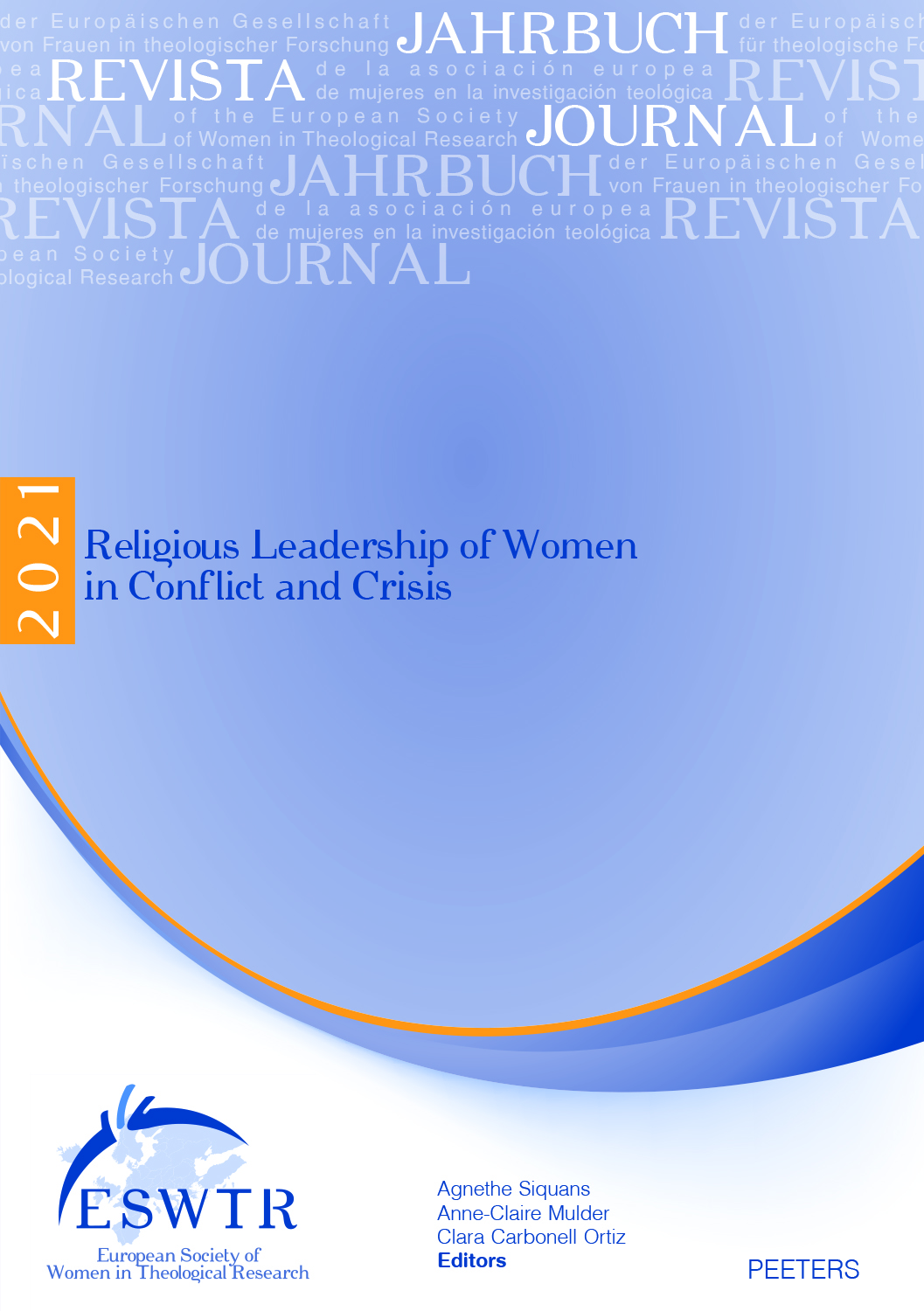 previous article in this issue previous article in this issue | next article in this issue  |

Preview first page |
Document Details : Title: Specifically Catholic Subtitle: At the Intersection of Power, Maleness, Holiness, and Sexualised Violence. A Theological and Historical Comment on Power Author(s): WERNER, Gunda Journal: Journal of the European Society of Women in Theological Research Volume: 27 Date: 2019 Pages: 147-174 DOI: 10.2143/ESWTR.27.0.3286560 Abstract : This article explores the power relations involved in the Roman Catholic sacrament of reconciliation, or confession. The author frames the post-Tridentine development of confession as part of the modern trend towards control of the human subject through methods of education which have resulted in interiorised self-regulation according to a set pattern. The author uses the analysis of power and discipline introduced by Michel Foucault and intersectional analysis in order to show how this dynamic came to dominate Catholic understandings of confession in the post-Tridentine Church. The author argues that private confession focuses the individual subject on self-regulation, especially with regard to sexuality, in a way that allows for both more subjective autonomy as well as greater institutionalised control. In conclusion, it is shown how this method of control is applied to women through predetermined roles for womanhood, and how these roles are inextricably linked to biological sex. This, coupled with the sustained insistence of a sense of sin, has greatly contributed to the abuse of power and sexualised violence that have been experienced in the modern Church. Dieser Artikel untersucht die Machtrelationen, wie sie in der römisch-katholischen Kirche im Sakrament der Beichte ausdrücken. Die Autorin versteht dabei die nachtridentinische Periode und Entwicklung der Beichte als Teil der Moderne, in der die Kontrolle des Subjekts über Erziehung funktioniert. Dies hat eine Internalisierung der selbstregulativen Ansprüche zur Folge. Hierhin kann ein Paradigma entdeckt werden, welches mit den Analyse von Michael Foucault auf der einen, mit der intersektionalen Analyse auf der anderen Seite untersucht werden kann. Mit beiden Analysen werden die Dynamik erhellt werden, die die posttridentinische Kirche durch das Sakrament der Beichte bekommen hat. Denn die Ohrenbeichte als einzige mögliche Form der sakramentalen Beichte fokussiert ja gerade das Individuum auf die Selbstregulierung, besonders im Blick auf die Sexualität. Diese Entwicklung ist sehr ambivalent, den sie ermöglich sowohl mehr Autonomie des Subjekts als auch eine größere institutionelle Kontrolle. Zugespitzt auf die Situation von Frauen wird deutlich, dass diese Methode der Kontrolle die Situation der Frauen noch einmal verschärft weil sie Frauen auf festgesetzte und festgelegte Rollen und Frauenbilder festlegt. Diese Rollen sind unmittelbar verbunden mit dem biologischen Geschlecht. Dies aber, verbunden mit der beibleibenden Betonung und Verharren auf der Sünde, hat den Boden bereitet für den Missbrauch von Macht und der sexualisierten Gewalt in der römisch-katholischen Kirche. Este artículo explora las relaciones de poder involucradas en el sacramento católico de la reconciliación o confesión. La autora enmarca el desarrollo postridentino de la confesión como parte de una tendencia moderna hacia el control del sujeto humano a través de métodos de educación que han resultado en una autorregulación interiorizada de acuerdo a un modelo preestablecido. La autora usa el análisis del poder y la disciplina de Michel Foucault y un análisis interseccional con el objetivo de mostrar cómo esta dinámica ha llegado a dominar la comprensión católica dominante de la confesión en la Iglesia postridentina. La autora discute que la confesión privada centra al sujeto individual en la autorregulación, especialmente en lo que respecta a la sexualidad, de una manera que permite tanto una autonomía más subjetiva como un mayor control institucionalizado. La autora concluye mostrando cómo este método de control se aplica a mujeres a través de roles predeterminados de feminidad, y cómo estos roles están inextricablemente conectados con el sexo biológico. Esto, junto con una continua insistencia en el sentido del pecado, ha contribuido enormemente al abuso de poder y de la violencia sexualizada que se ha experimentado en la Iglesia moderna. |
 |


